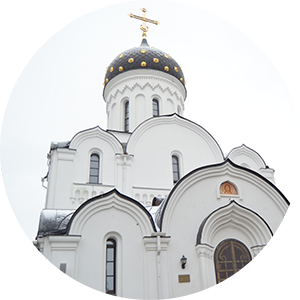By the time we
serve Vespers this evening at 7:00 p.m., Great Lent will have ended. We have
just been through the "sacred forty days" that will prepare us for
Holy Week following the two great feasts of Lazarus Saturday and Palm Sunday.
Looking back and
assessing the recent past is not always that easy. What does it actually mean
to have had a "good Lent?" What kind of balance did we maintain
between the outward and inward? If we fasted from meat, did we also fast from
sin? We can, of course, examine the patterns we maintained during Great Lent
concerning our prayer, almsgiving and fasting. Was there a "lenten
atmosphere" in our homes for forty days? We can also look back and ask
ourselves about our participation in the lenten liturgical services. Did we
make it to Confession and, if so, did we sincerely confess our sins? (And if we
did not make it to Confession, then why not?)
Then again, perhaps
we should look forward instead of backwards. Great Lent is over, but if, for
the moment, we look beyond even Holy Week and the initial Paschal celebration,
we will find ourselves in the post-Paschal season. What positive practices can
we carry forward with us as we resume our Christian lives outside of the
rarefied atmosphere of Great Lent and Holy Week? If, during Great Lent, we
worked on overcoming a particular "bad habit," an unhealthy
obsession, or one of the passions, are we determined not to allow that
spiritual victory to lapse now that Lent is over? If we were less dependent
upon food and drink; if we overcame this or that "addiction;" and if
Great Lent was about acting in a particularly vigilant manner for forty days;
are we to now act as if it never happened once we have our "Pascha
bash?" I often wonder if Bright Week is all about forgetting what we may
have learned in the "school of repentance" of Great Lent. As if we
try and "catch up" with what we "missed" for Great Lent. In
this way, Great Lent is reduced to being a pious interlude that brings to us a
false sense of spiritual complacency because we more-or-less followed the
rules.
I would encourage
everyone to look precisely at those positive practices that were established
with a bit of "blood, sweat and tears" during Great Lent, and try and
carry them forward. We may no longer be fasting, but there must be some things that
we have learned to live without - on the material, psychological and spiritual
levels of existence - in a manner that was "good for the soul," to
use that expression. Perhaps, with some serious reflection, we can make a
choice about a new experience of freedom that we truly want to continue beyond
Holy Week and Pascha. Great Lent is a time of recovery - beginning with a
recovery of a sense of urgency in our relationship with God. An even greater
struggle is now coming: with the "post-Paschal blues" that leave us rather
empty and lacking in any vigilance toward the passions that undermine our
recovery of God's loving and dynamic presence.
In short, I am
hoping, on the one hand, to alert everyone to the danger of treating Great Lent
as a limited season of abstinence that does not extend beyond the shaded areas
on the church calender that represent "fasting days," and, on the
other hand, to the great potential that those very fasting days revealed to us
of focusing our lives on God in a serious manner, thus making Great Lent the
entrance into a renewed and reinvigorated commitment to the life in Christ. We
need to choose between mere formalism and the Gospel precept of placing God
before all else. The choice is simple, though the "follow through" is
challenging.


















CONVERSATION